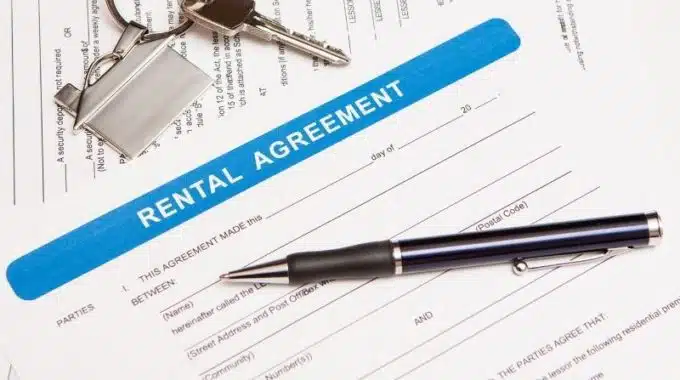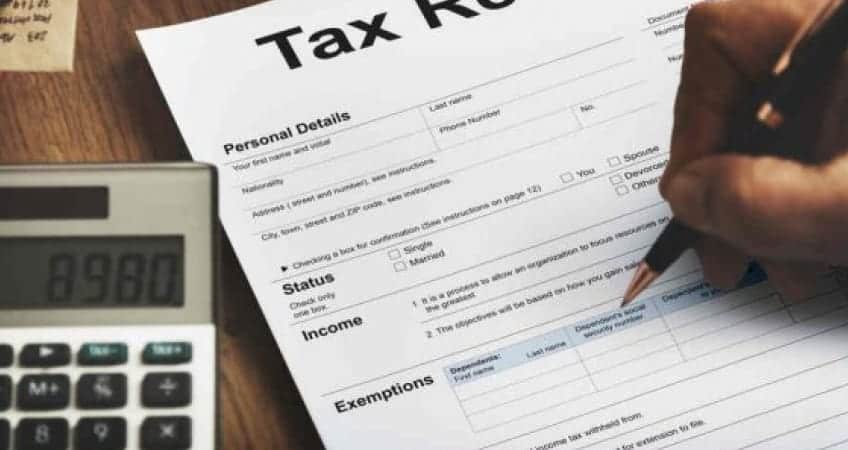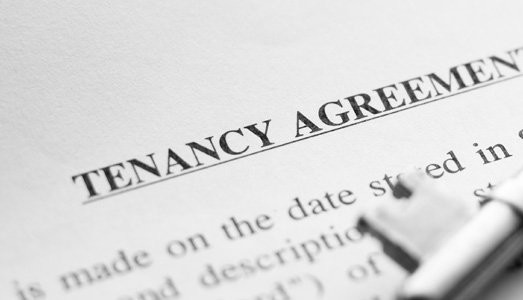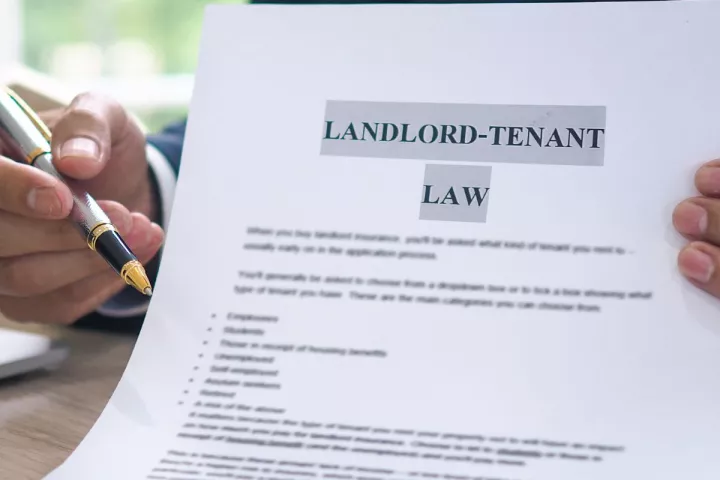The taxman discovers rental income through various methods. Firstly, tenants’ reports play a crucial role, as they’re obligated to provide information about their rental payments.
Additionally, property management companies or tenants often issue Form 1099, which reports rental payments to landlords. The IRS cross-checks tax returns with data from banks and mortgage lenders, verifying reported income against financial records. Real estate paperwork and public records also reveal property ownership and rental income details.
Moreover, random or targeted tax audits can uncover unreported rental income, ensuring compliance with tax regulations. It’s essential for landlords to accurately report rental income to avoid penalties and audits.
What are the Methods Used by the Taxman to Find Rental Income?

Tax authorities wield a variety of methods to track down undeclared rental income. Here’s a detailed breakdown of the approaches you mentioned
Reporting by Tenants
When tenants apply for housing benefits, they’re often required to disclose their rent payments. This information is shared with the tax authority, who can then compare it to landlord tax returns.
In some cases, disgruntled tenants might directly report a landlord who isn’t declaring rental income. This could be due to disputes, frustration with repairs, or a desire to get back at the landlord.
Data Matching
Tax authorities can access land registry records to identify property owners. This allows them to cross-check with tax returns and see if income is being declared for those properties.
In some countries, letting agents are required by law to report rental income information to the tax authority on behalf of landlords. This significantly improves tracking for the authorities.
Banks and other financial institutions may report transactions related to rental income, such as deposits from tenants or mortgage payments on investment properties.
Many countries have deposit protection schemes where details about tenancies are recorded. Tax authorities can access this data with proper legal procedures to identify potential unreported income.
Property Inspections (Less Common)
While less frequent than data matching, physical inspections can be used in specific situations.
Inspectors might check for evidence of multiple residents, such as overflowing bins or multiple utility meters, suggesting potential unreported income from additional tenants.
If a property is declared vacant but shows signs of occupancy (e.g., mail piling up), it could trigger further investigation.
Online Platforms and Advertisement Tracking
The rise of online platforms has opened new avenues for tracking rental income. Here’s how
Platforms like Airbnb and Vrbo often require hosts to report income, which can be shared with tax authorities.
Tax authorities may monitor social media and online listing sites for rental advertisements. Identifying undeclared properties through these channels is becoming increasingly common.
What are the vital steps to reporting rental income accurately?
Avoiding tax investigations depends on accurately reporting your rental income. Here’s how to ensure you’re on the right side of the law
Keeping Accurate Records
Keeping detailed records is essential for filing taxes correctly. Here’s what you should track
- Keep copies of all signed tenancy agreements, including details like rent amount, lease term, and any security deposits.
- Document all rental income received, including cash payments, checks, and online transfers. Note the date and amount of each payment.
- Save receipts for all rental property-related expenses, such as repairs, maintenance, mortgage payments, property taxes, and insurance premiums.
Having a strong record-keeping system allows you to easily track income and expenses, simplifying tax preparation and potentially maximizing deductions. Consider using accounting software or dedicated spreadsheets to manage your records efficiently.
Understanding Tax Obligations
Tax regulations surrounding rental income can vary depending on your location. Here are some key aspects to understand
- Identify all income generated from your rental property. This includes regular rent payments, late fees, utility reimbursements received from tenants, and any forfeited security deposits.
- Familiarize yourself with allowable deductions for rental property expenses. These might include repairs, maintenance costs, property taxes, mortgage interest, and depreciation. Understanding what you can deduct can significantly reduce your taxable income.
- Research the specific tax forms and deadlines for reporting rental income in your area. Consult a tax professional if you’re unsure about any aspect of tax filing.
Staying informed about your tax obligations ensures you’re compliant with regulations and avoids potential penalties for underpayment or incorrect reporting.
Get help from Professionals
Tax laws can be complex, and navigating them independently can be overwhelming. Here’s where a qualified tax advisor can be invaluable
- A tax professional can analyze your individual circumstances and advise on the most tax-efficient way to report your rental income.
- They can help you identify all allowable deductions you might be missing, minimizing your tax liability.
- Tax laws are subject to change. A tax advisor can keep you informed of any updates that might impact your rental income reporting.
While there’s a cost associated with professional advice, it can save you money in the long run by preventing costly mistakes and ensuring you’re taking advantage of all available deductions.
What are the risks of failing to report rental income to the tax authorities?

Failing to report rental income can have serious consequences. Here are the risks associated with not reporting or incorrectly reporting rental income
Penalties and Interest
If tax authorities discover unreported rental income, you may face penalties and interest on the unpaid tax amount.
These financial consequences can significantly impact your overall tax liability.
Tax Reassessments
Tax authorities can reassess your tax returns for up to three years after the original filing date.
If they suspect unreported rental income, they may adjust your income, deductions, and credits accordingly.
Legal Repercussions
Failing to declare rental income is a legal violation. Also, you could face legal actions, including fines or even criminal prosecution.
Loss of Deductions
Incorrect reporting may lead to the loss of legitimate deductions.
Properly reported rental income allows you to claim allowable expenses and reduce your tax liability.
FAQ
What are your top 3 financial priorities?
You should focus on three important things. First, make sure you have some money saved for unexpected problems. Second, try to pay off any money you owe as soon as you can. Lastly, start thinking about your retirement early, so you have enough money saved up when you’re older. Yes.
What is the difference between gross and share?
When it comes to selling tickets, here’s the difference. Gross is the total amount of money from all the tickets sold. Share is the part of that money that goes to the distributor, usually around half, after taking away things like taxes. Yes.
How does HMRC know about undeclared income?
The taxman has ways to find out if you didn’t tell them about all the money you earned. They use special computer programs to check information, like if you bought or sold a house, or if you have a job. They also look at records from banks and other places where you might have put your money. Yes.
How much tax do I pay on rental income?
If you make money from renting out a house, you might not have to pay tax on the first £1,000 you make. After that, you might need to pay tax on the money you make, but it depends on how much you earn. You can also take away some of the money you spent on things like repairs or insurance before you pay tax. Yes.
Will rental income affect my taxes?
Yes, it will. When you make money from renting out a house, you have to tell the taxman about it. You can also take away some of the money you spent on things like repairs or insurance before you pay tax. And if you decide to sell the house later, you might have to pay some extra tax.
Final thoughts
The taxman uses various methods to track rental income, including reporting by tenants, data matching, property inspections, and monitoring online platforms.
So, landlords must report rental income accurately to avoid penalties, audits, and legal consequences.



